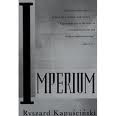 I am often very kind in my assessment of particular books because of their purpose. Such is the case with Shooting Kabul by newcomer to writing, N. H. Senzai, who grew up in San Francisco and Saudi Arabia. She tells the reader it is a story that had to be told, one that continued to niggle at the back of her head until she got it out.
I am often very kind in my assessment of particular books because of their purpose. Such is the case with Shooting Kabul by newcomer to writing, N. H. Senzai, who grew up in San Francisco and Saudi Arabia. She tells the reader it is a story that had to be told, one that continued to niggle at the back of her head until she got it out. Shooting Kabul is loosely based on her husband as a child and his family leaving Afghanistan because of the Taliban. It involves degrees in agriculture earned in the United States and a return to Afghanistan to improve farming techniques. After the Taliban's return to primitivism and total control of government and culture, the family's efforts (and efforts of many other families) were no longer wanted. It became unsafe to stay, thus a dark-of-night escape to asylum in the United States.
But that's not why I gave this book five stars. The writing, plotting, characters, plot conflicts--all would rate four stars. Ends are too conveniently tied and plot events are manipulated. But guess what? I don't care. Here's why Shooting Kabul is a five-star book for children 9-12 and any older audience who wants to know more about Afghan culture.
1. The novel provides an up-close look at a typical Afghan family, actually, a Pukhtun family. The Pukhtuns make up the largest ethnic group of the Afghan peoples, comprising 42 percent of the population. The reader learns a little about religion, language, food, daily habits, family life. A "little" means just enough to weave into the story without overdoing it. The glossary of unfamiliar names and Afghan factos is included in the back of the book, as well as a further reading list.

(Extra Credit is one of the recommended books, a book I recently reviewed.
2. The plot is timed during the Sept. 11 attack on American soil, thus "forcing" American attacks on the Muslim people in American and how they dealt with those attacks.
3. Friendships that cross racial and religious lines. Both Fadi, the main character, and his older sister, form relationships with others: Fadi with a Chinese-American classmate and his sister with an Anglo.
4. Good family relations. Children cannot possibly get enough examples of good family relationships in life or books.
5. A photography component. Fadi's father Habib taught him how to photograph while they were in Afghanistan and gave him his old Minolta camera. In San Francisco Fadi joins the photography club in his middle school and enters a competition with one of his photographs. Seeing photography as an art form being promoted is a real boon for this book.
The most serious problem in the novel is the loss of the youngest child, Miriam, while the family is leaving by dark-of-night. During the mad rush to climb into the escape truck, Miriam is left behind. A six-year-old girl. There was no turning back with the Taliban hot on their trail. One of the prizes of the photography contest is a trip with a let's-call-it-National-Geographic photographer to one of three countries for a photography shoot (with a parent, of course). One of the countries is India. Fadi believes he can win that trip and find his sister.
I thoroughly enjoyed this book and would like to see it in the hands of good teachers. librarians, home-schoolers, and parents to begin a dialogue to improve American-Muslim relations.
Shooting Kabul? A photography term, of course, to tie all components together. Fadi and his dad "shot" many photographs of their city in Afghanistan, starting his love of photography and the twist it plays in the story.










